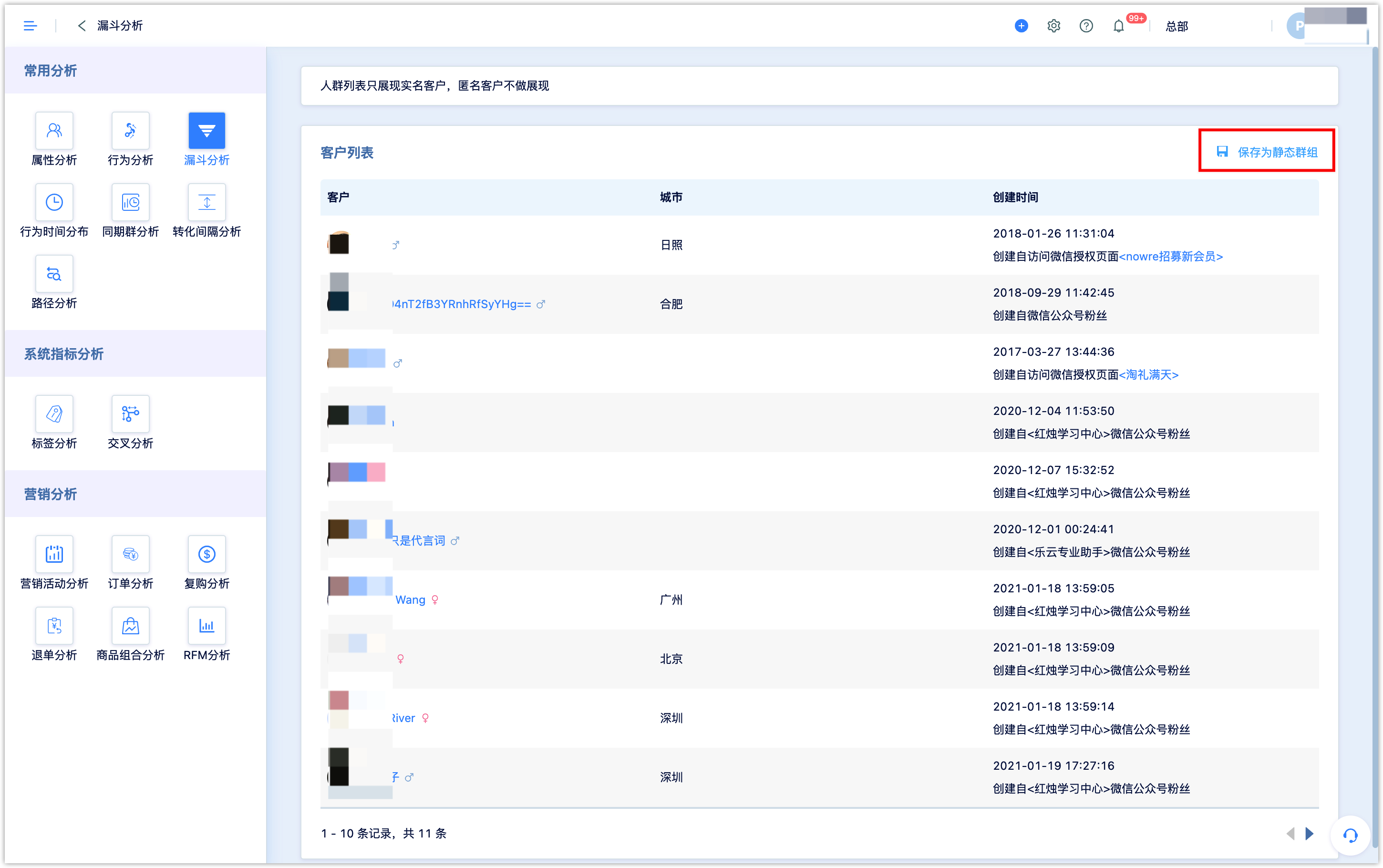Funnel analysis
1.Why is funnel analysis needed?#
Funnel analysis is based on customer event data. The funnel model can help companies measure the conversion and loss of each step in a business process. Then, by analyzing the conversion data of each step, we can improve the design of products or business processes and increase the process conversion rate.
Combining a certain business process, through funnel analysis, what hidden information can the company obtain?
- Is the design of the company's purchase process smooth?
- Are the guiding words of the marketing process ineffective?
- Why did some people put products in the shopping cart but did not purchase?
- Segment customers from different sources (or campaigns), which ones have the highest conversion rate?
2.Calculation rules for funnel analysis#
Basic definition:
Assuming that a funnel analysis includes five steps A, B, C, D, and E, and a customer triggers A, B, C, D, and E in sequence, it is deemed that the customer has completed an event funnel conversion.
If a customer triggers A, X, B, X, C, X, D, X, E in turn, it is also counted as the customer successfully completed funnel conversion (X can be any event).
In funnel analysis, customers who have had subsequent events must have had previous events. Example: In an event funnel conversion, a customer who has an event C must have done event A and an event B.
Number of funnel steps:
At least two steps and a maximum of eight steps.
3.Process guide#
3.1set analysis group#
The funnel analysis only supports the analysis of a group of people. It is recommended to filter out the people to be analyzed first, and then directly select the group in the funnel analysis.
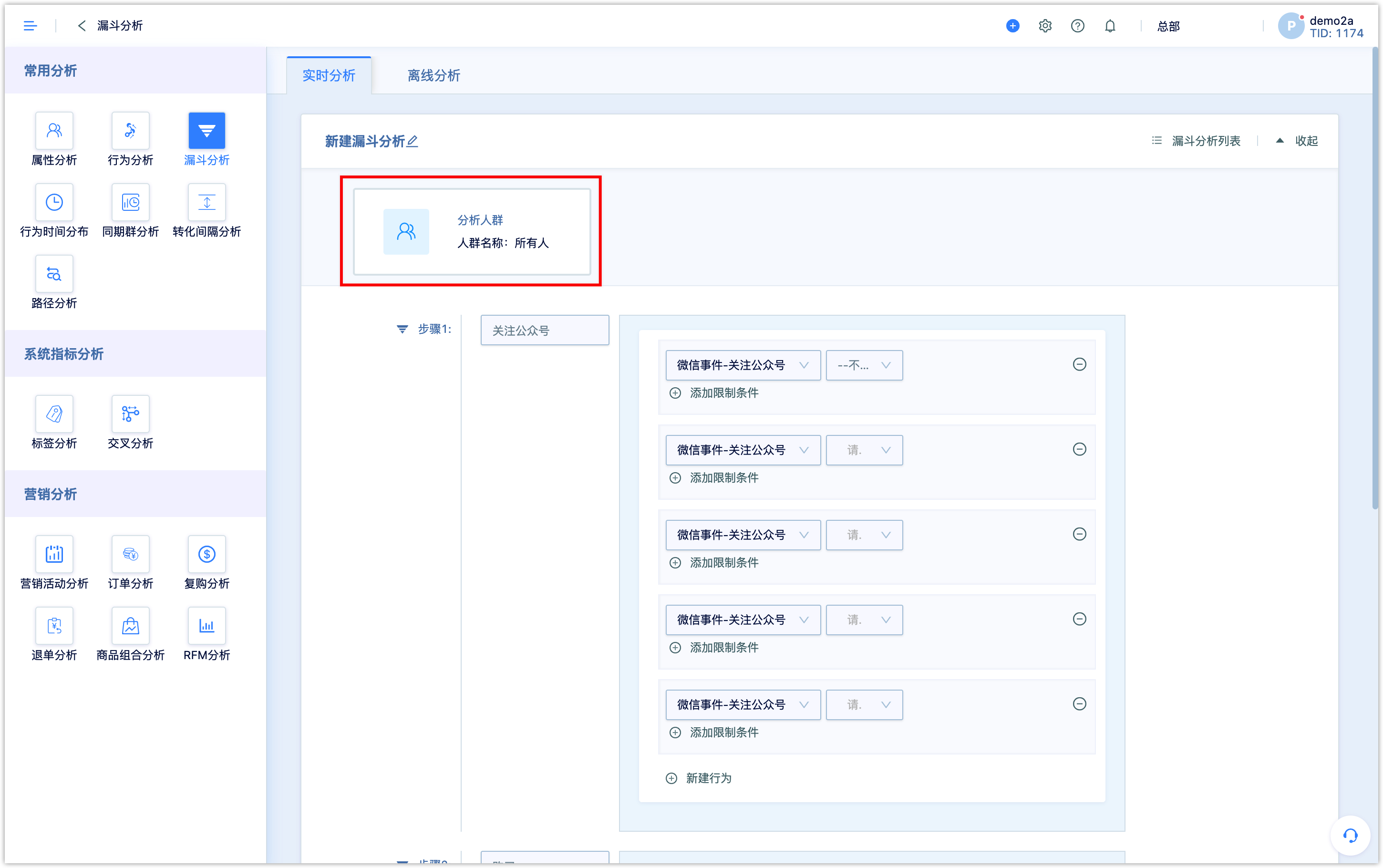
3.2Set funnel steps#
According to the business process, set the steps of the funnel. For example, if a certain campaign is needed to be analyzed, you need to select important customer events to form the steps of the funnel according to the marketing activity process. DM Hub supports up to 8 steps.
Set the step name, and then select the customer event to add restrictions to the event. Multiple events can be added to a step, and the relation between multiple events is [or], that is, any event that occurs is counted as this step. Up to 8 events can be added in a single step.
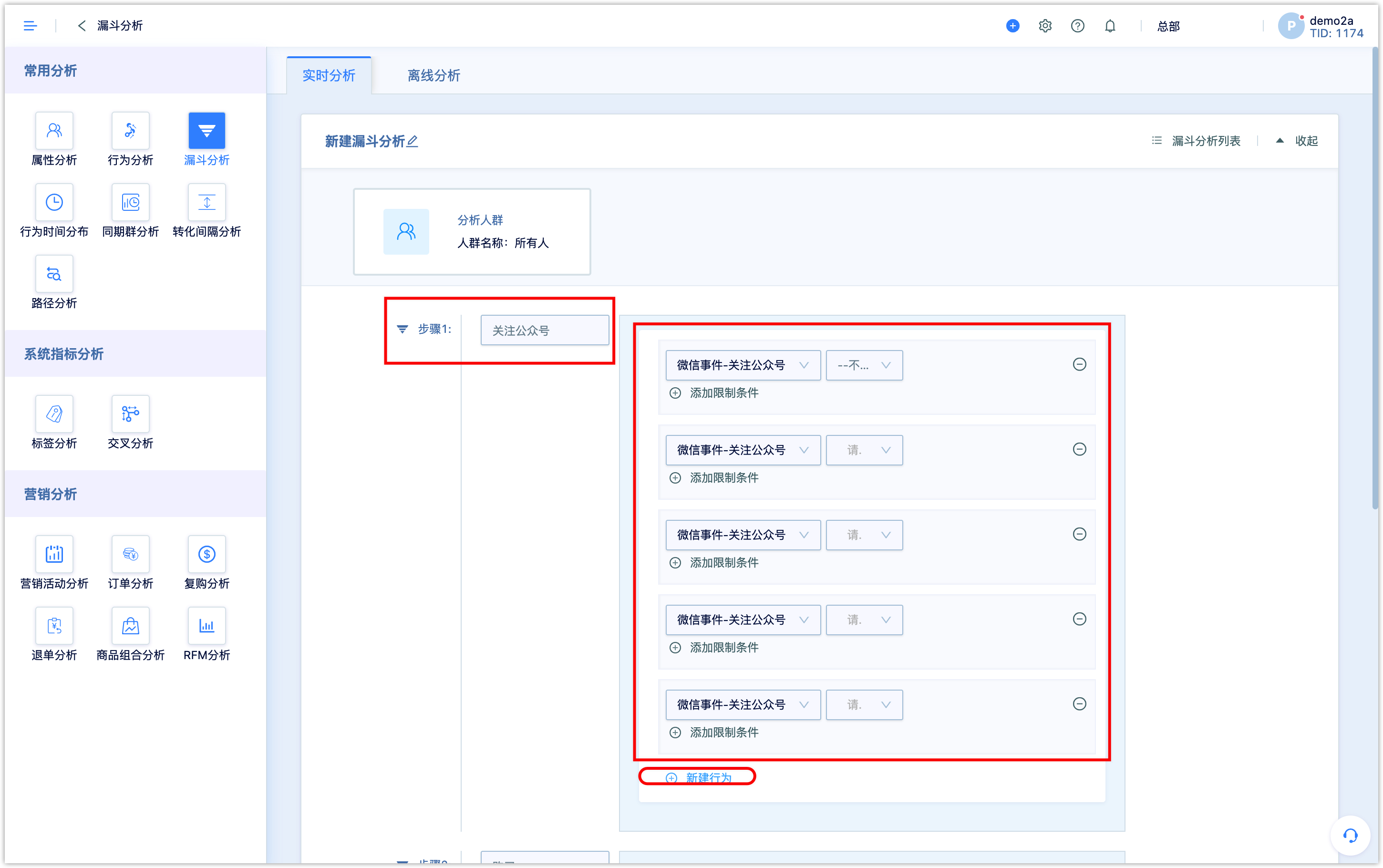
If the [Purchase Goods and Services] event is selected in this step, other events are not supported.
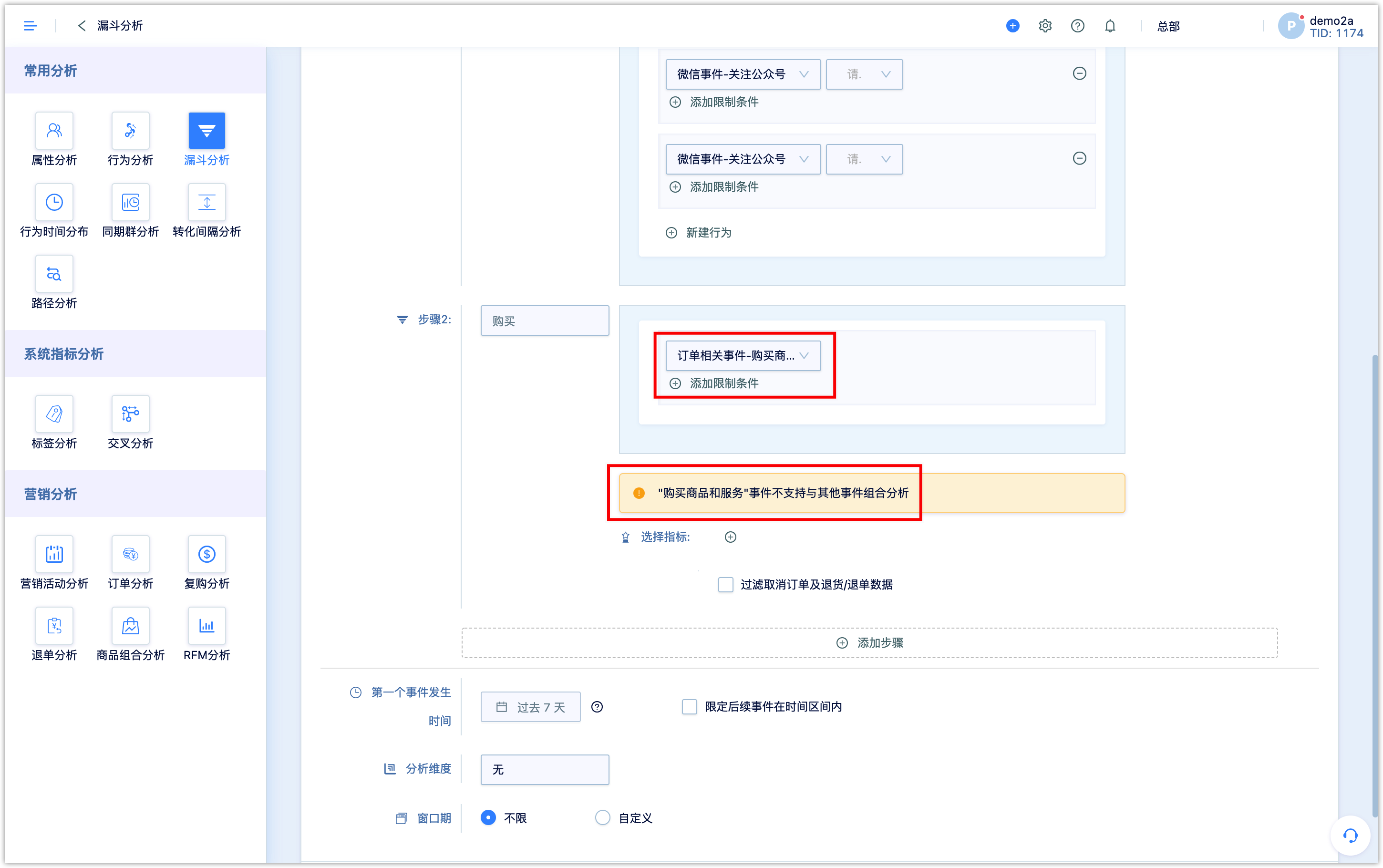
If the [Purchase Goods and Services] event is selected, the system also supports adding event indexes. In the final analysis result, indexes such as the number of orders for the purchase event and the sum of order amounts will be displayed.
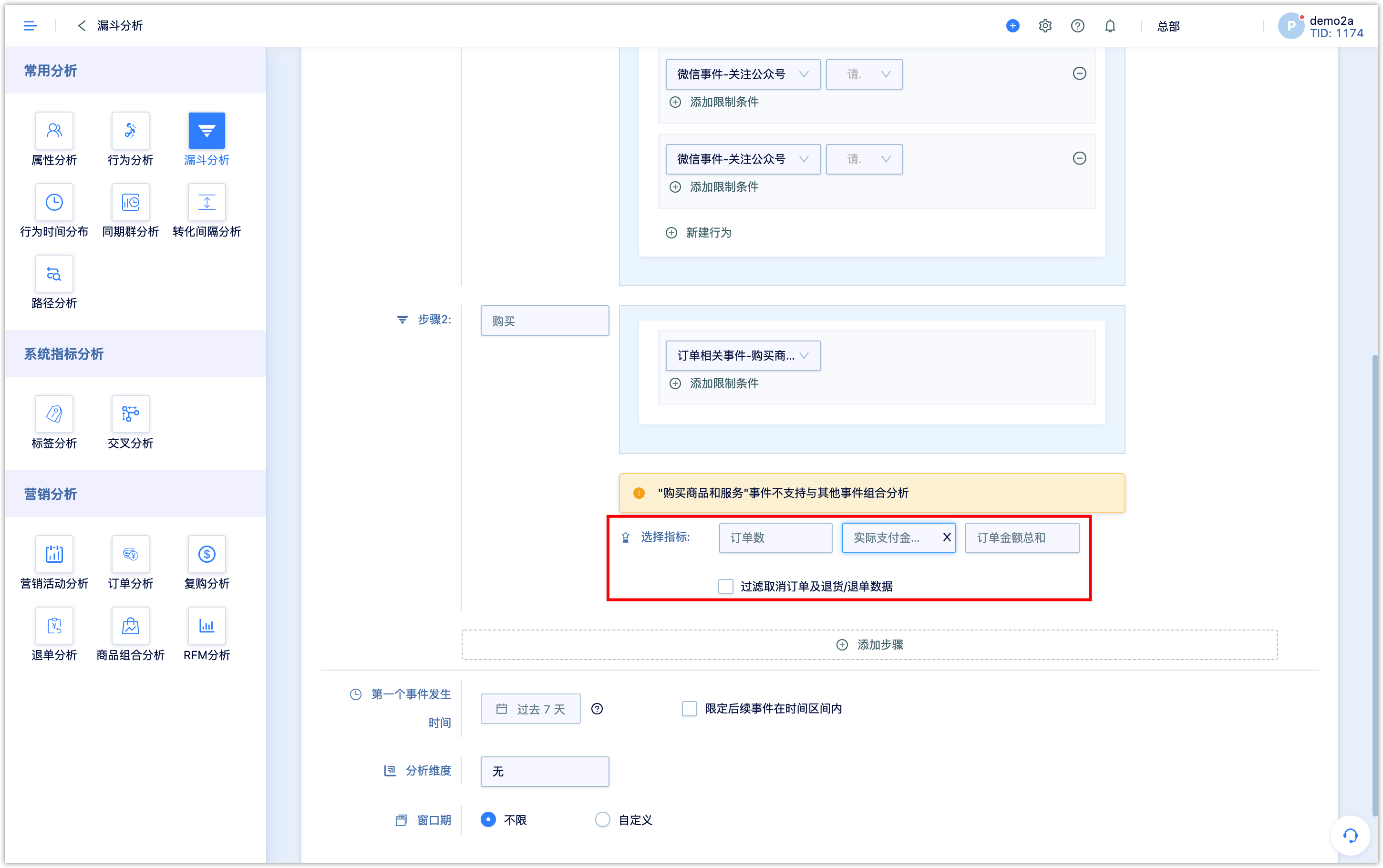
3.3Set the first event time#
The first event time, that is, the occurrence time of the event selected in the first step of the funnel. Real-time analysis only supports event query within 365 days. If you need to analyze historical data, an offline analysis is needed.
You can check the [Limit subsequent events within the time interval], that is, you can limit the event occurrence time from the second step to the last step of the funnel to be within the time range just set.
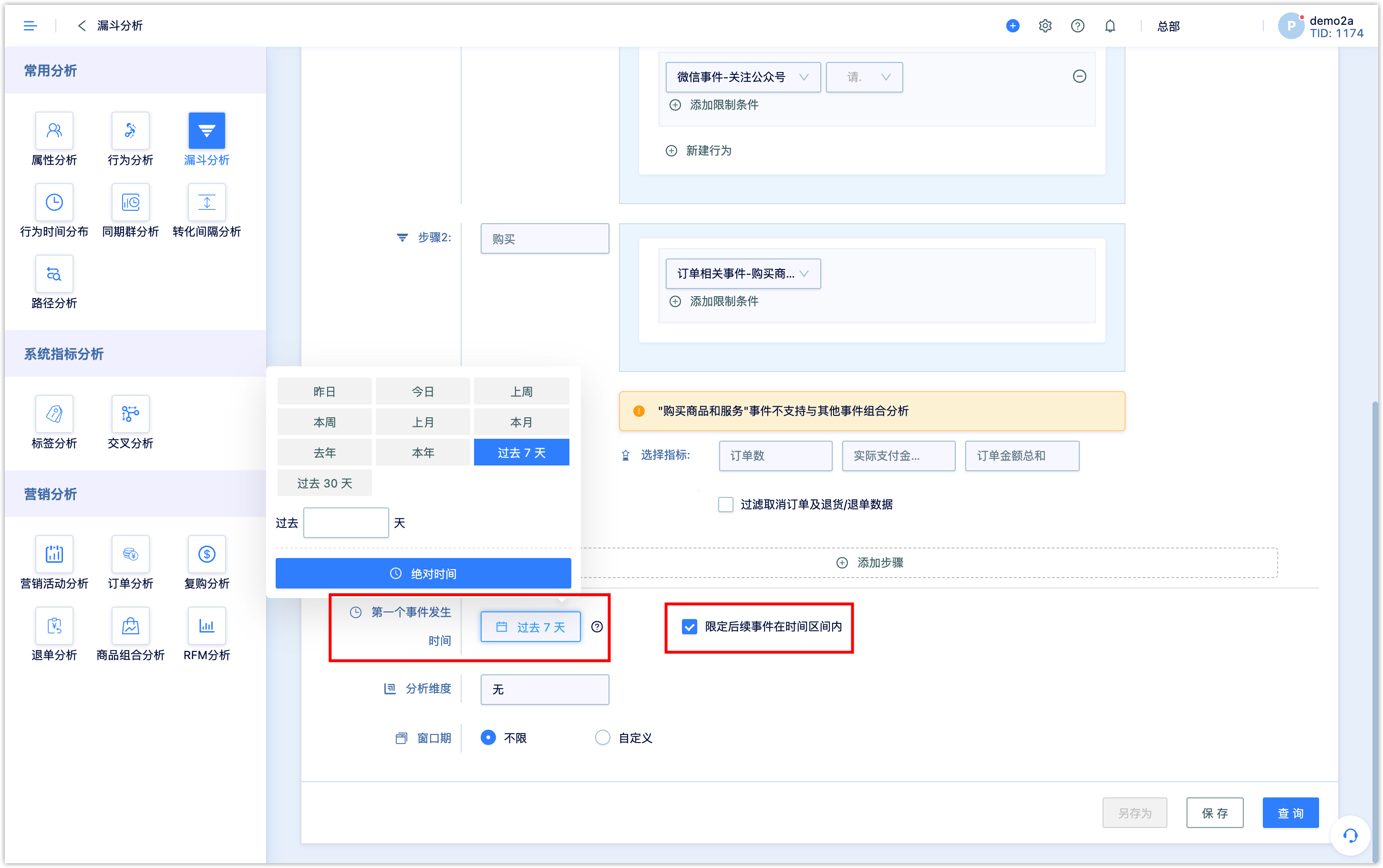
3.4Set analysis dimensions#
The funnel analysis also supports the setting of analysis dimensions, and the funnel conversion under each dimension will be analyzed according to the dimensions.
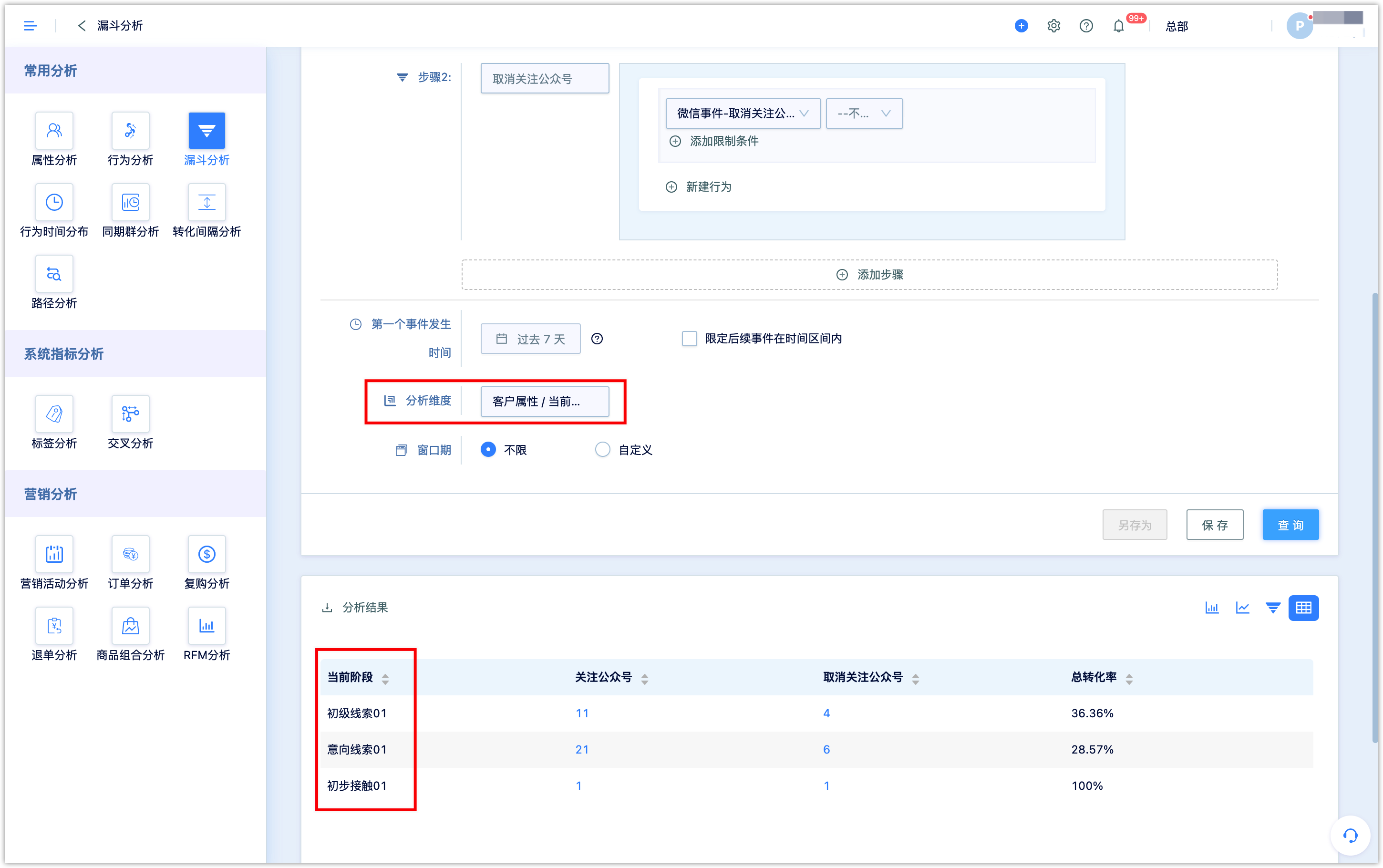
3.5Set the time window#
The window is the conversion cycle of the entire funnel, which defines the time range from the first event to the last event.
The time window can be set to [Unlimited], then after the first step occurs, whenever the second step to the last step occurs, it will be considered as a successful conversion.
The window period can also be customized and can be analyzed by hour or day. After the first step occurs, the subsequent steps need to be completed within the defined time to be considered successful. If a customer completes multiple conversions within the window, only one conversion will be recorded.
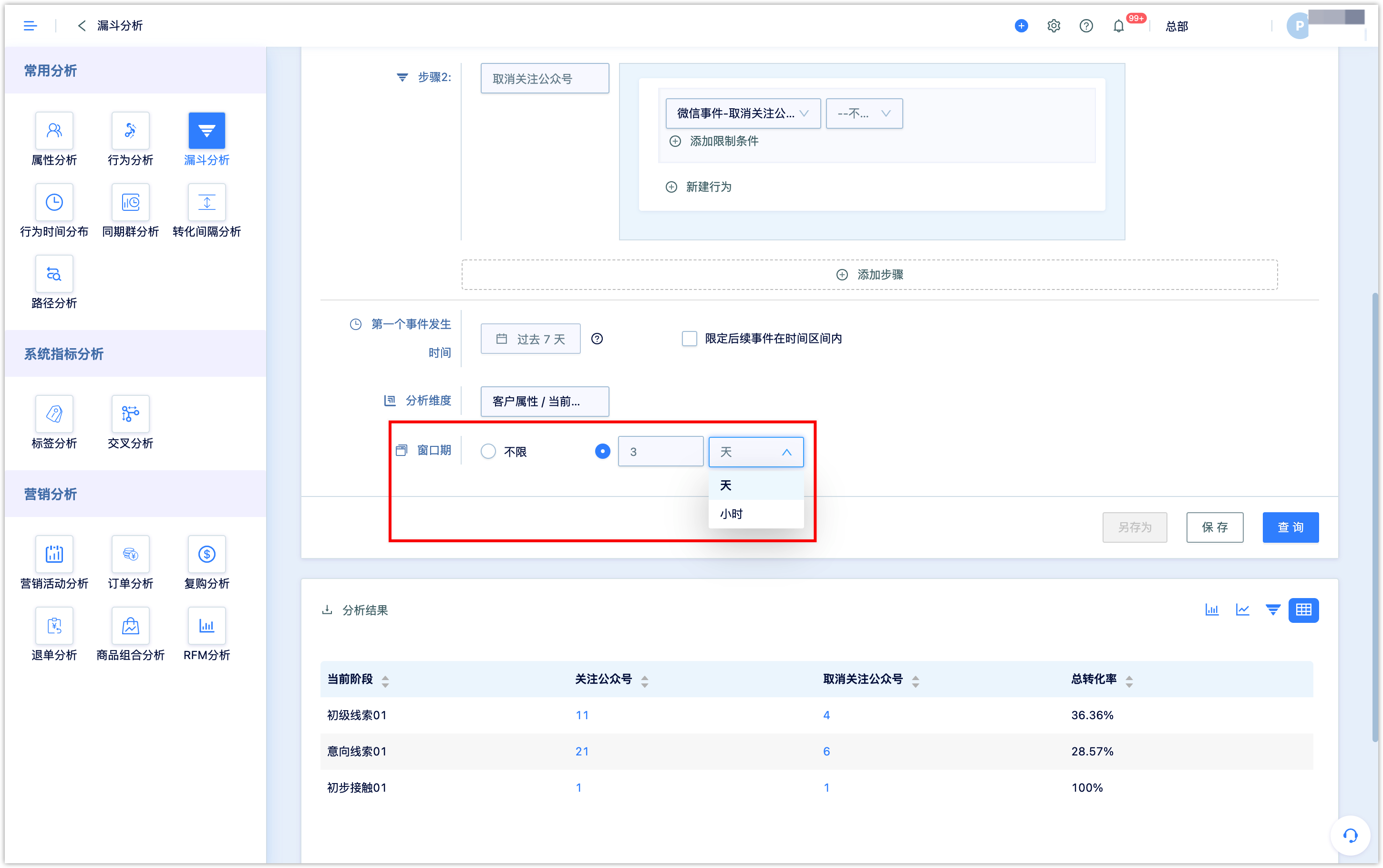
3.6View the analysis results#
After the setting is complete, click [Query] to view the analysis results. Click on a specific number to view specific customers, only real-name customers will be displayed, and anonymous customers will not.
Note: Funnel analysis can have many restrictive conditions. In some cases (for example, certain analysis dimensions are set), the display of specific customer lists is not supported. Clicking on the specific number may occur error.
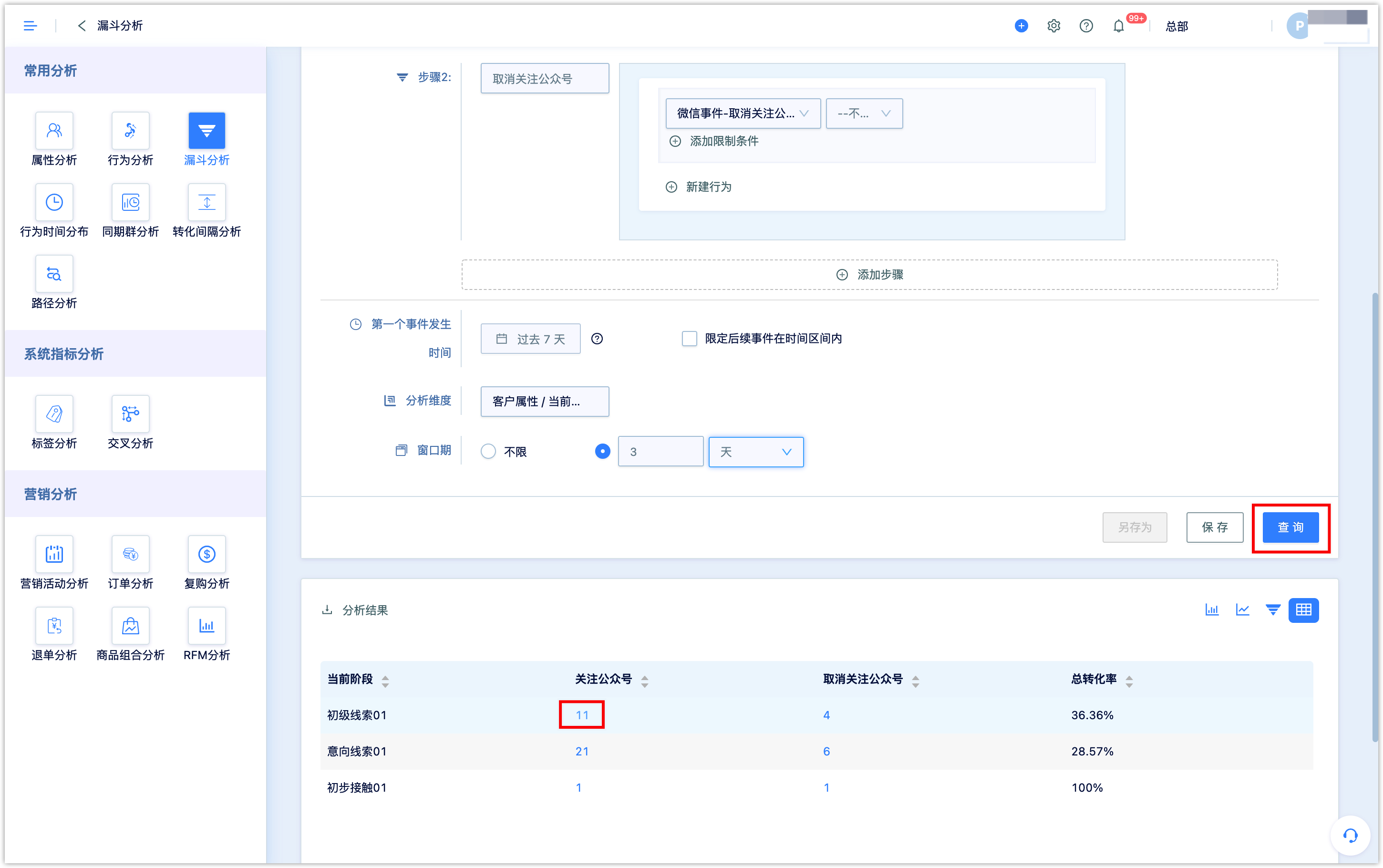
These customers can be saved as a group.
